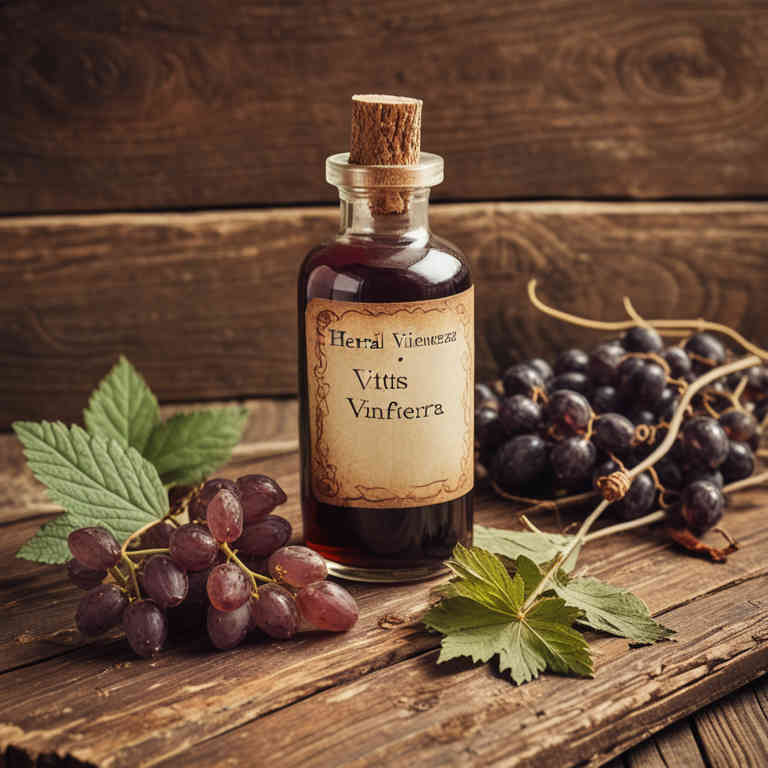Vitis vinifera tincture for medicinal use

Vitis vinifera tincture is a concentrated herbal preparation made from the leaves and berries of the grape vine, commonly used in traditional herbal medicine.
This tincture is typically prepared by soaking the plant material in alcohol to extract its active compounds. It is valued for its potential antioxidant and anti-inflammatory properties. In herbalism, it is used to support cardiovascular health and may help with conditions like high blood pressure.
It is often recommended as a complementary therapy under the guidance of a qualified herbalist.
Uses
Vitis vinifera tincture has been used to support cardiovascular health and enhance cognitive function for centuries.
Historically, it was valued in traditional Chinese and Ayurvedic medicine for its antioxidant properties and ability to promote longevity. In modern times, it is commonly used as a dietary supplement to improve circulation, reduce oxidative stress, and support brain health. The tincture is derived from the leaves and berries of the grapevine, which contain resveratrol and other polyphenols known for their health benefits.
Its use continues to evolve with ongoing research into its potential therapeutic applications.
Benefits
Vitis vinifera tincture has health benefits such as improving cardiovascular health, supporting liver function, and enhancing cognitive performance.
This preparation, derived from the grape vine, is rich in antioxidants like resveratrol, which help combat oxidative stress and inflammation in the body. It may also aid in regulating blood sugar levels and reducing the risk of chronic diseases. Additionally, it has been traditionally used to promote joint health and enhance overall vitality.
Its versatility makes it a popular choice for those seeking natural remedies for various health concerns.
Constituents
Vitis vinifera tincture active constituents include resveratrol, flavonoids, procyanidins, and polyphenols.
These compounds are known for their antioxidant, anti-inflammatory, and cardioprotective properties. Resveratrol, in particular, has been studied for its potential role in supporting heart health and reducing oxidative stress. Flavonoids contribute to the tincture's ability to improve vascular function and enhance immune response.
Overall, these active constituents make Vitis vinifera tincture a popular herbal preparation for promoting overall wellness and supporting various health conditions.
Preparation
To make Vitis vinifera tincture, first gather 100 grams of dried grapevine leaves or 50 grams of dried grape seeds, depending on the desired potency.
Place the chosen herb in a glass jar and cover it completely with high-proof alcohol, such as 40-50% ethanol or grain alcohol. Seal the jar and let it sit in a dark, cool place for 4 to 6 weeks, shaking it gently every few days to ensure even extraction. After the steeping period, strain the liquid through a fine mesh strainer or cheesecloth to remove the plant material.
Finally, transfer the tincture to a dark glass bottle and store it in a cool, dry place, away from direct sunlight.
Side Effects
Vitis vinifera tincture may lead to gastrointestinal discomfort, such as nausea, vomiting, or diarrhea, especially when taken in high doses.
It can also cause headaches, dizziness, or sleep disturbances in some individuals. Long-term use may result in liver damage due to the presence of compounds like resveratrol and other phytochemicals. People with diabetes should use it cautiously, as it may lower blood sugar levels.
Additionally, it may interact with certain medications, including anticoagulants and antidepressants, increasing the risk of adverse effects.